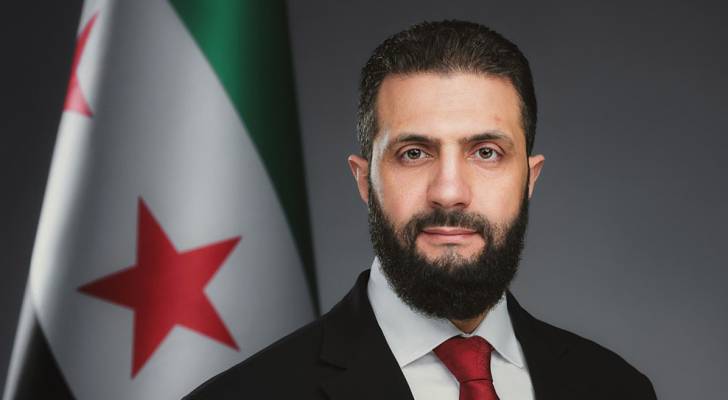Syrian President Ahmad al-Sharaa
Syrian president: New Syria seeks fresh start with Lebanon
Syrian President Ahmad al-Sharaa said that the “new Syria” is seeking to open a fresh page in relations with Lebanon, stressing that Damascus does not intend to interfere in Lebanese affairs but aims to strengthen bilateral ties after years of tension.
“I have moved past the wounds caused by Hezbollah’s attacks on Syria,” al-Sharaa said in an exceptional meeting with an Arab media delegation in Damascus. “I refrained from making statements that could inflame Lebanese factions and sought to maintain equal distance from all parties without excluding anyone.”
Al-Sharaa acknowledged that Lebanon suffered from Syrian policies during the rule of former presidents Hafez al-Assad and Bashar al-Assad, emphasizing that Syria now wants to be seen as a partner in stability and development, not as a force of control.
Read more: VIDEO - US envoy cuts short south Lebanon visit amid protests
Economic cooperation and overcoming divisions
The president highlighted that political and sectarian polarization in Lebanon should not be exploited for investment, arguing instead that focus must be placed on economic stability and joint growth. He said such cooperation would benefit Lebanon and allow it to tap into Syria’s economic recovery.
He pointed to the importance of collaboration in ports, roads, gas pipelines, and electricity, stressing that Lebanon needs a careful and inclusive reform process where all groups feel represented in order to avoid potential internal unrest.
Syria’s stance on Iran and the “resistance axis”
Addressing the regional dimension, al-Sharaa said Iran “lost the so-called axis of resistance” after losing Damascus, noting that Tehran is seeking ways to reestablish influence.
However, he insisted that Syria will not rely on sectarian or political polarization in Lebanon, but rather on economic cooperation and stability-building.




